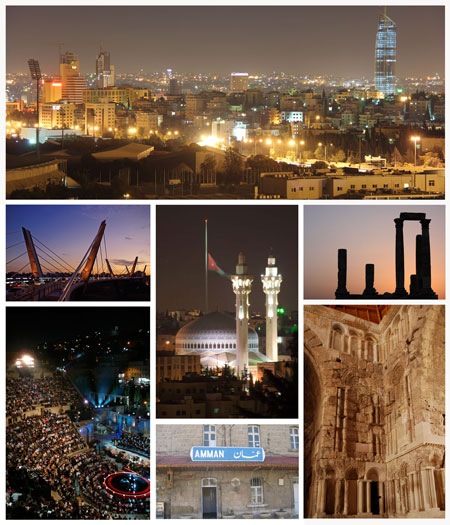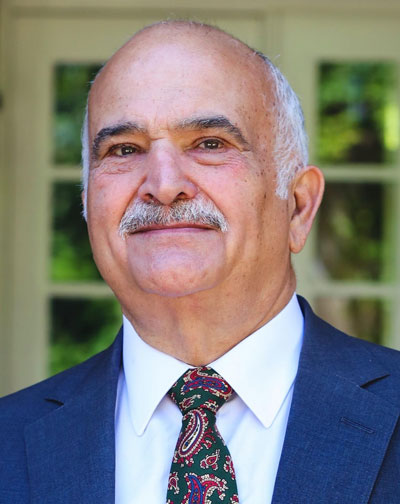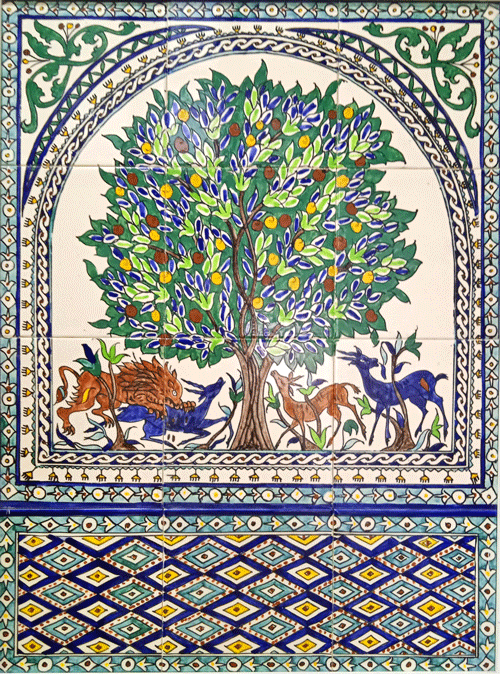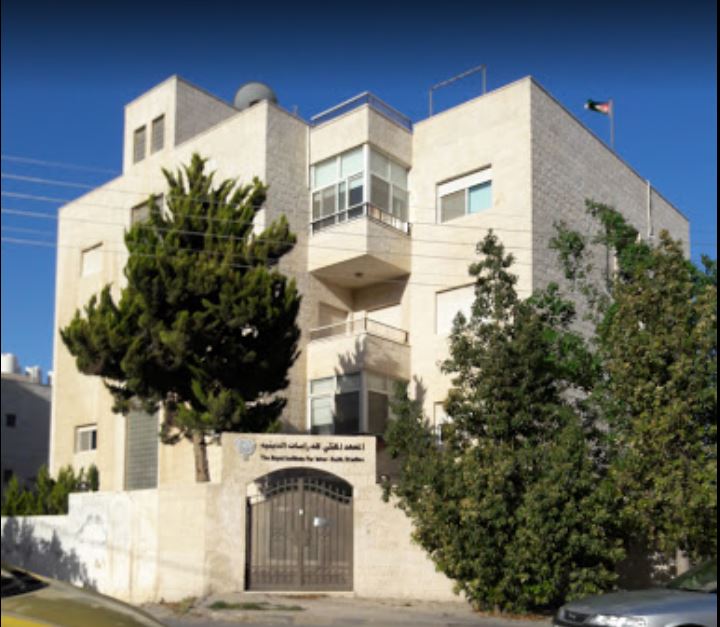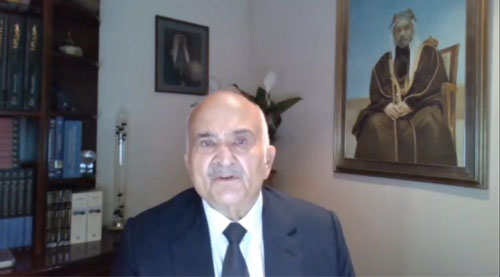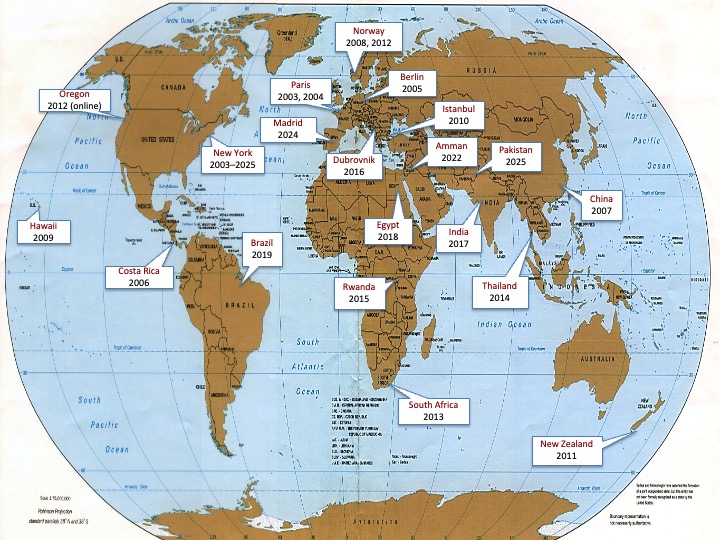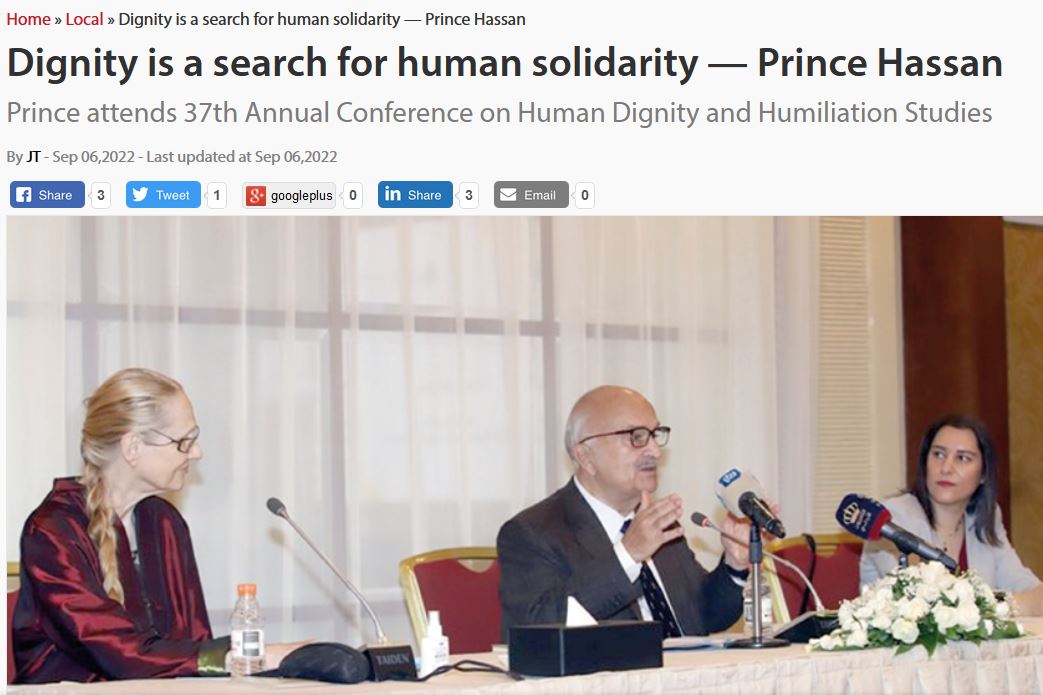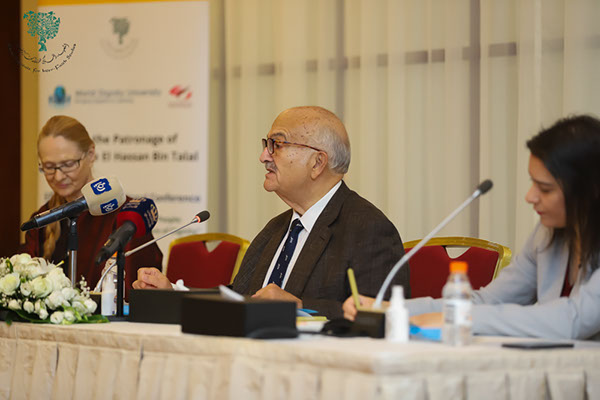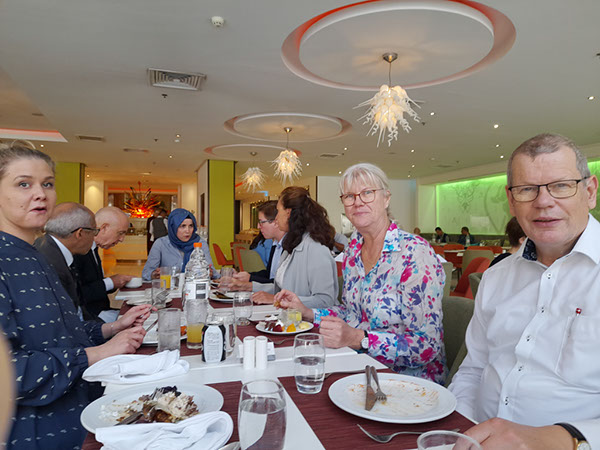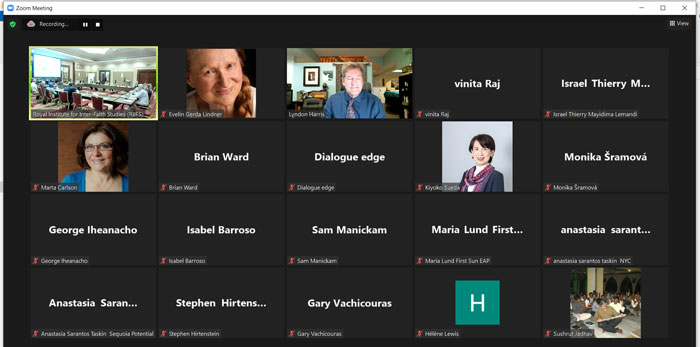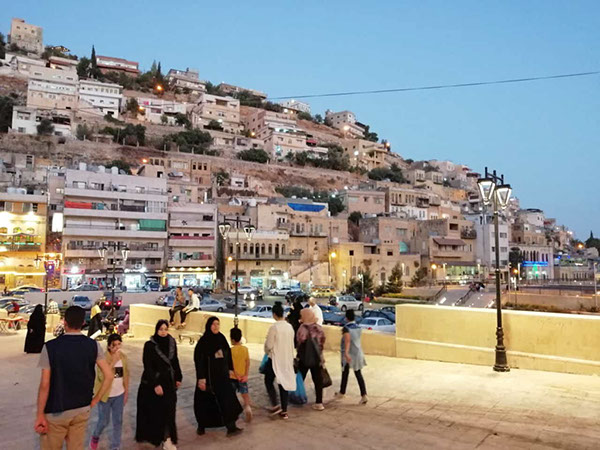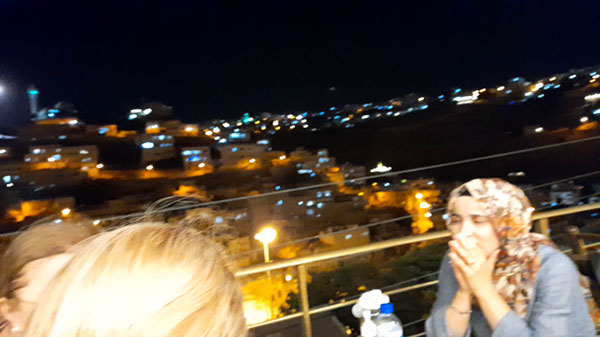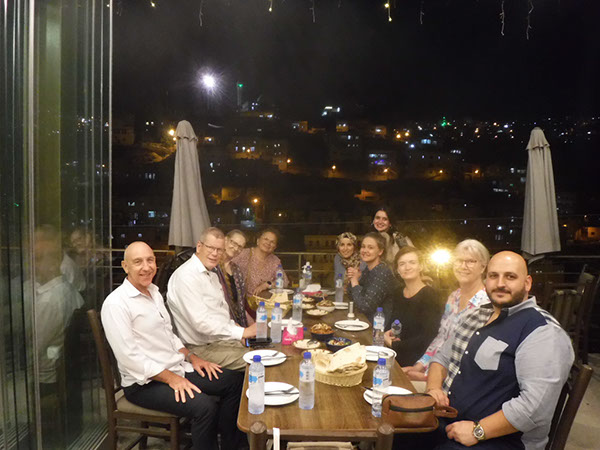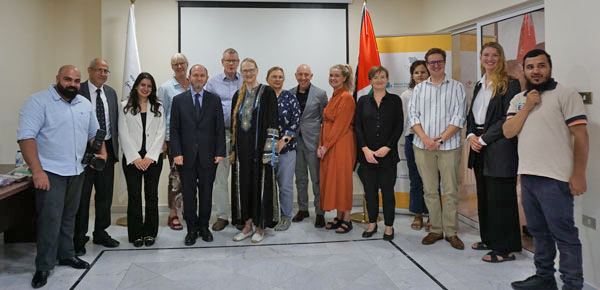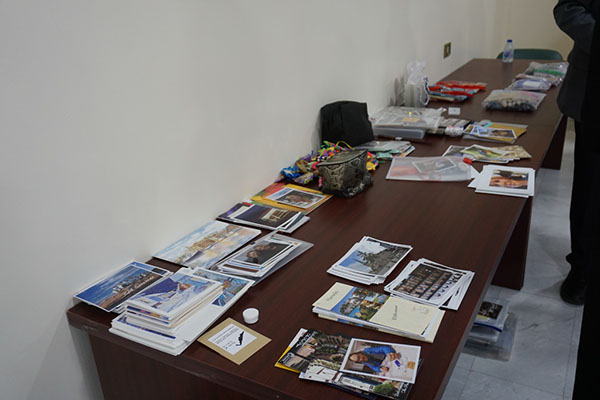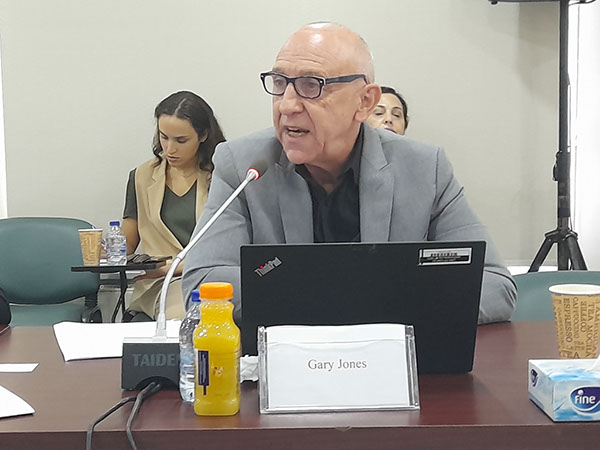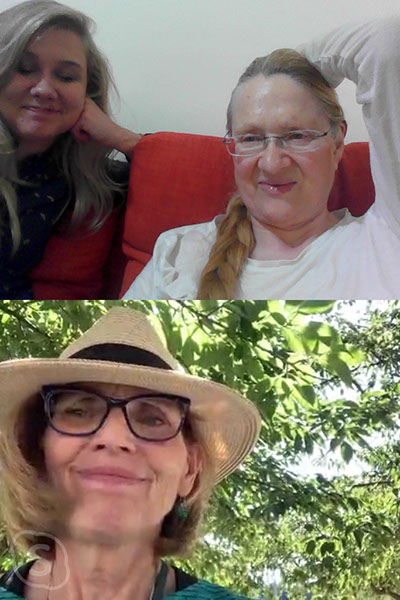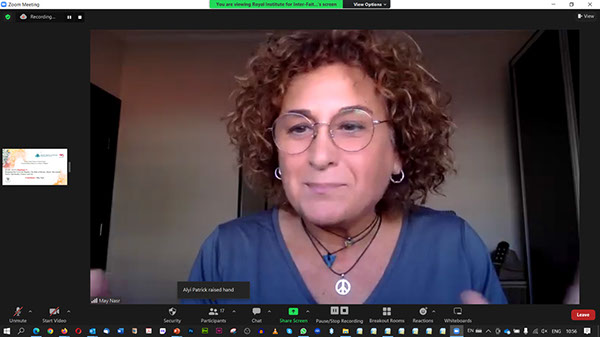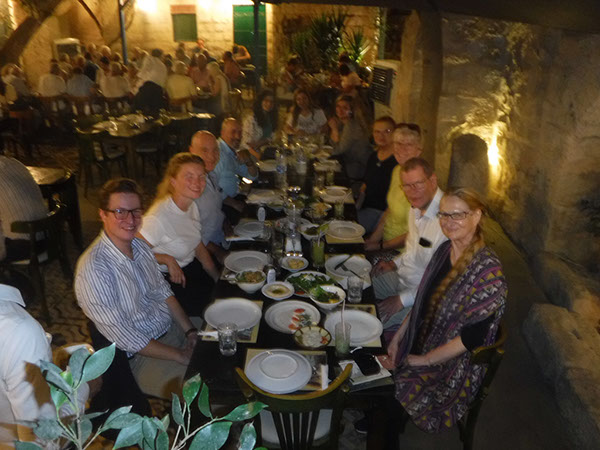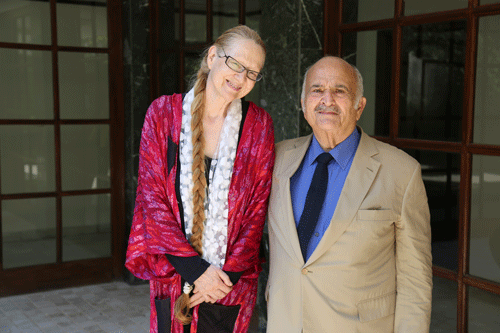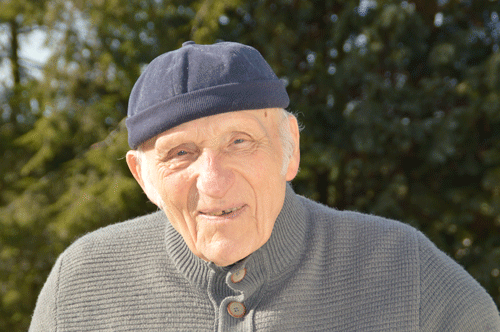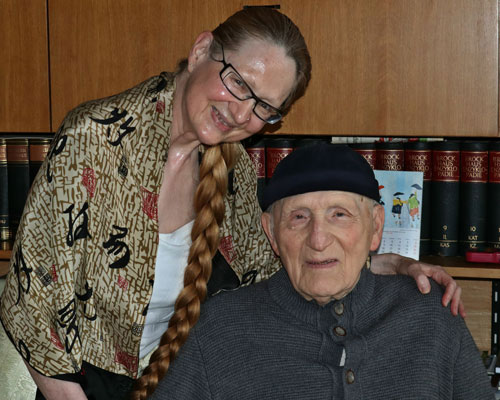37th Annual Conference of Human Dignity and Humiliation Studies
'From United Nations to United People: From the Brink of Disaster to a Future of Dignity'
organised by the Royal Institute for Inter-Faith Studies with the World Dignity University Initiative
under the patronage of His Royal Highness Prince El Hassan bin Talal
in Amman, Jordan
and online
5th – 7th September 2022
'The gap between the good that humanity could do and what it does do is too humiliating!'
—
Evelin Lindner, 20th June 2022
In preparation for attending this workshop, all participants were kindly asked to make themselves familiar with
the Appreciative Enquiry Frame that we use in our work
See an introduction created by Linda Hartling on 23rd August 2022 for this conference
(see also 2021,
2020, 2019, 2016, 2015, 2014 (see also Pdf), 2012, 2011,
and see An Appreciative Frame, written by Linda Hartling in 2005, and see also an early overview)
All participants were furthermore kindly asked to learn about our
Dignilogue (Dignity + Dialogue) Approach and Connection-Reflection Groups
You are invited to see the programme below
or download a simple version or detailed version
Day One |
'In a world defined by uncertainty, we need a renewed sense of global solidarity to tackle our interconnected, common challenges', Achim Steiner, administrator of UNDP, the 2022 UN Development Programme’s Human Development Report, Uncertain Times, Unsettled Lives: Shaping our Future in a Transforming World
'World leaders are failing to prepare for a new era of complex and often unpredictable risks to peace as profound environmental and security crises converge and intensify', SIPRI, the independent international institute dedicated to research into conflict, armaments, arms control and disarmament, in its 2022 report Environment of Peace: Security in a New Era of Risk
This was a hybrid conference hosted in Amman and online via Zoom, to make it possible for friends from all over the world to participate.
125 people from all over the world registered online, with a small group of HumanDHS members joining in person in Amman, together with various number of participants from Jordan.
Please know that you are always invited to spend the entire conference with us, be it online and offline, so that true dignity-family-building can emerge!
All our events are part of an ongoing effort to nurture a global dignity community.
There is no registration fee, we share minimal cost according to ability at the end.
Public Opening Event:
Workshop Part with Dignilogues Local Hosts, Conveners, and CoordinatorsThe conference is hosted
in cooperation with We would like to thank His Royal Highness Prince El Hassan bin Talal for founding the Royal Institute for Inter-Faith Studies and for inviting us to hold our annual dignity conference this year at this institute. Equally, we would like to thank Renée Hattar for her immensely dignifying and dignified leadership! |
The Royal Institute for Inter-Faith Studies Looked Back on the Conference |
|
What is dignity?
A quality serving Humanity that is:
Character-elevating
Humility-testing
Solidarity-promoting
Respect-enhancing
Globally-influencing
Community-educating
Equality-sustaining
...
Please add other features!
Peace linguist Francisco Gomes de Matos from Recife, Brasil, 11th June 2022,
list offered to stimulate reflections in preparation for this conference!
All our conferences are invitations to explore how we can best deepen, grow, and practice the global message of dignity — now and far into the future. |
• Frame
• List of Conveners
• Programme
• List of Participants
• Appreciative Frame of the conference
• History of the Dignilogue (Dignity + Dialogue) Approach
• Papers
• Background Material
• Previous Reflections on the Format of the Conference
• What happened in our previous meetings? Please see Newsletters
Frame
by Linda Hartling, 2004
In our meetings we aim at creating a humiliation-free, collaborative learning environment characterised by mutual respect, mutual empathy, and openness to difference. The perspective of 'appreciative enquiry' is a useful frame of our work. Our HumanDHS efforts are not just about the work we do together, but also about HOW WE WORK TOGETHER. At appropriate points during our meetings, for example at the end of each day, we take a moment to reflect on the practices observed that contributed to an appreciative/humiliation-free learning experience.
It is important to emphasise that an appreciative approach is not about expecting people to agree. In fact, differences of opinion enrich the conversation and deepen people's understanding of ideas. Perhaps, this could be conceptualised as 'waging good conflict' (Jean Baker Miller), which means practicing radical respect for differences and being open to a variety of perspectives and engaging others without contempt or rankism. As we have seen in many fields, contempt and rankism drain energy away from the important work that needs to be done. Most people only know 'conflict' as a form of war within a win/lose frame. 'Waging good conflict', on the other side, is about being empathic and respectful, making room for authenticity, creating clarity, and growth.
Please see:
• An Appreciative Frame: Beginning a Dialogue on Human Dignity and Humiliation, written by Linda in 2005
• Appreciative Facilitation: Hints for Round Table Moderators, kindly written in February 2006 by Judith Thompson to support the moderators of our workshops.
• Buddhist Teachings on Right Speech, kindly provided to us by Thomas Daffern in 2006, relating to our quest for appreciative enquiry, caring and being.
• Dignilogue Tips and Dynamic Dignilogue List, created by Linda Hartling on October 10, 2015, for the 2015 Workshop on Transforming Humiliation and Violent Conflict, in New York City, December 3 – 4, 2015.
• Appreciative Enquiry 1, a video that was recorded on October 30, 2011, in Portland, Oregon, USA, by Evelin Lindner, for the World Dignity University initiative.
• Please see further down more introductory videos on our Appreciative Frame created by Linda Hartling.
• Please see also Linda Hartling's introduction to the Dignilogue (Dignity + Dialogue) Approach and the Connection-Reflection Groups.
List of Conveners
His Royal Highness Prince El Hassan bin Talal of Jordan
A statesman and peacemaker, His Royal Highness Prince El Hassan bin Talal of Jordan has worked for decades to promote peace, interfaith dialogue, and humanitarian justice. He is the founder of the Royal Institute for Inter-Faith Studies in Amman. He has served as the president of the Club of Rome from 1999 to 2007, the board of directors for the Center for Peace Studies and Conflict Resolution at the University of Oklahoma, the Parliament of Cultures, the Royal Jordanian Polo Club, and the International Tolerance Foundation for Humanities and Social Studies, and is honorary president of the Euro-Mediterranean Association for Cooperation and Development since 2012.
Prince El Hassan bin Talal is a member of the Jordanian royal family, he is the brother of King Hussein, who was King of Jordan until his death in 1999, and he is the uncle of King Abdullah II, the present King of Jordan, who reigns since February 7, 1999.
Renée Hattar is the Director of the Royal Institute for Inter-Faith Studies in Amman. She holds a PhD in Peace Studies from the University of Granada-Spain and specialised in Music and Peace with a focus on Arab Christian Studies, Interfaith, and Peacebuilding. She has participated in many conferences, workshops and trainings on different topics, such as Arab Christian studies, peacebuilding, music and peace, PVE, dialogue and inter-faith.
Evelin Gerda Lindner, Medical Doctor, Clinical and Social Psychologist, Ph.D. (Dr. med.), Ph.D. (Dr. psychol.), Organiser of the HumanDHS Conferences, Supporting the Local Conveners
Evelin Gerda Lindner is the Founding President of the Human Dignity and Humiliation Studies (HumanDHS) network and initiator of the World Dignity University initiative. She is a transdisciplinary social scientist and humanist who holds two Ph.D.s, one in medicine and one in psychology. In 1996, she designed a research project on the concept of humiliation and its role in genocide and war. German history served as starting point. She is the recipient of the 2006 SBAP Award, the 2009 "Prisoner’s Testament" Peace Award, the 2014 HumanDHS Lifetime Award, and she has been nominated for the Nobel Peace Prize in 2015, 2016, and 2017. She is affiliated with the University of Oslo, Norway, with its Department of Psychology since 1997, periodically also with its Center for Gender Research and with its Norwegian Centre for Human Rights, furthermore, with Columbia University in New York since 2001, first with its Conflict Resolution Network (CU-CRN), which in 2009 was superseded by the Advanced Consortium on Cooperation, Conflict, and Complexity (AC4). She is also affiliated with the Maison des Sciences de l'Homme in Paris since 2001. Lindner is teaching globally, including in South East Asia, the Middle East, Australia, Africa, and other places globally. [read more]
Please see:
• Interview with Evelin Lindner - Challenges of our Time; Learning to Connect, December 8, 2016
• Mini-Documentary of the Annual Human Dignity and Humiliation Studies Workshop on Transforming Humiliation and Violent Conflict "The Globalization of Dignity," December 8 - 9, 2016
Linda Hartling, Ph.D., Social Psychologist, Organiser of the HumanDHS Conferences, Supporting the Local Conveners
Dr. Linda M. Hartling is the Director of Human Dignity and Humiliation Studies (HumanDHS). She is also a Member of the HumanDHS Global Advisory Board, HumanDHS Global Core Team, HumanDHS Global Coordinating Team, HumanDHS Research Team, and HumanDHS Education Team. She is the Editor of the Journal of Human Dignity and Humiliation Studies (JHDHS).
Hartling is affiliated with the Jean Baker Miller Training Institute (JBMTI) at the Stone Center, which is part of the Wellesley Centers for Women at Wellesley College in Massachusetts.
Until November 2008, she was its Associate Director. Hartling is a member of the JBMTI theory-building group advancing the practice of the Relational-Cultural Theory, which is a new model of psychological development. In addition, Hartling coordinates and contributes to training programs, publications, and special projects for the JBMTI. She holds a doctoral degree in clinical/community psychology and has published papers on resilience, substance abuse prevention, shame and humiliation, relational practice in the workplace, and Relational-Cultural Theory. [read more]
Please see:
• Humiliation: Real Pain, A Pathway to Violence, the draft of Linda's paper for Round Table 2 of our 2005 Workshop on Humiliation and Violent Conflict, Columbia University, New York.
• Humiliation: Assessing the Impact of Derision, Degradation, and Debasement, first published in The Journal of Primary Prevention, 19(4): 259-278, co-authored with T. Luchetta, 1999.
• Shame and Humiliation: From Isolation to Relational Transformation, the Jean Baker Miller Training Institute (JBMIT), Wellesley Centers for Women, Wellesley College No. 88, Wellesley, MA 02481, co-authored with Wendy Rosen, Maureen Walker, Judith V. Jordan, 2000.
• Humiliation and Assistance: Telling the Truth About Power, Telling a New Story, paper prepared for the 5th Annual Conference of Human Dignity and Humiliation Studies 'Beyond Humiliation: Encouraging Human Dignity in the Lives and Work of All People', in Berlin, 15th -17th September, 2005.
• Mini-Documentary of the Annual Human Dignity and Humiliation Studies Workshop on Transforming Humiliation and Violent Conflict "The Globalization of Dignity," December 8 - 9, 2016
Workshop Programme
Day One, 5th September 2022
Venue:
Landmark Amman Hotel & Conference Center, Al Hussein Bin Ali Street, Amman
• 10:00 – 10:20 (9:00 Central European / Rwanda time, 3:00 New York / Brazil time)
Welcome and Greetings, honouring our hosts, collaborators, supporters, and guests:
• Dr. Renée Hattar, Director of the Royal Institute of Inter-Faith Studies (RIIFS) (Zoom recording)
• Dr. Evelin Lindner, World Dignity University initiative (WDUi) (Zoom recording | Pdf)
• 10:20 – 11:00 Inspirational Key Talk by His Royal Highness Prince El Hassan bin Talal, Chairman of RIIFS
(Video | Zoom recording | Media Coverage)
Video
See also The Jordan Times article (Pdf) and watch Prince El Hassan inaugurates the Human Dignity Conference from the United Nations to United Peoples on RoyaNews TV

Kindly click on the pictures above or here to see all 28 photos sent to us by Renée Hattar
Kindly see also the postings by Renée Hattar on Linkedin here and here
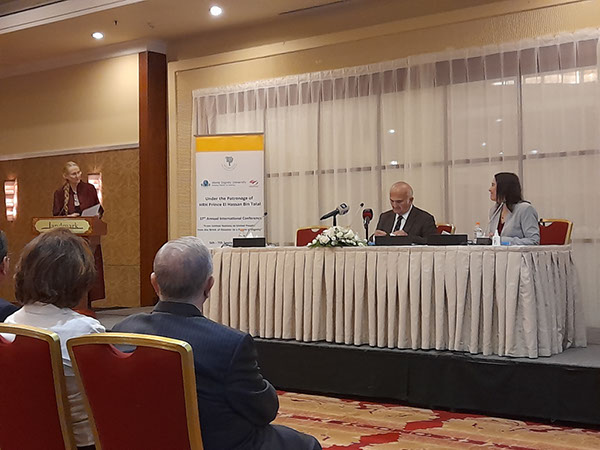
Kindly click on the pictures above or here to see 9 photos kindly taken by Georg Geckler together with a small cell phone video
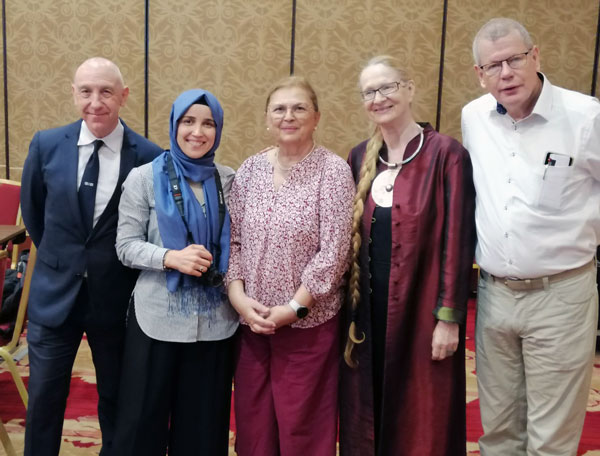
On the left is the HumanDHS group with Gary, Fatma, Mara, Evelin and Georg (Ella, Dorothee and Zsuzsa are missing on the photo)
On the right side is a screenshot of Zoom — it was a hybrid conference, with 125 participants registered from all around the world in addition to the local participants
Kindly click on the pictures above to see them larger
• 11:00 – 11:30 Coffee Break
End of Public Event
Beginning of Dignilogues
11:30 – 11:45
• Overview of the Conference and Day 1
• In preparation for attending this workshop, all participants were kindly asked to make themselves familiar with
the Appreciative Enquiry Frame that we use in our work
See an introduction created by Linda Hartling on 23rd August 2022 for this conference
(see also 2021, 2020, 2019, 2016, 2015, 2014 (see also Pdf), 2012, 2011,
and see An Appreciative Frame, written by Linda Hartling in 2005, and see also an early overview)
• Please see an introduction to the Dignilogue (Dignity + Dialogue) approach (more here) and the Connection-Reflection Groups for Community Building. Dignilogues are designed to 'plant seeds' of thinking to inspire dialogue. Following each Dignilogue session, all participants are invited into a Connection-Reflection Group to deepen the conversation about the ideas shared in the Dignilogue. The Dignilogue Sessions (45 min) usually unfold in these ways:• Contributors have 7 minutes to share their topic, idea, experiences
• Contributors are kindly asked to keep their use of technology minimal (e.g., 4–6 Powerpoint slides)
• Contributors may share any relevant papers that could be posted on the conference website for additional readingDignihosts (facilitators) have these goals:
1. Introduce the session and introduce each contributor before he/she speaks
2. Keep a loving eye on the time: We suggest 7 minutes for each member of the group
3. The Dignihost can determine how to use any extra time, perhaps facilitating a dialogue between contributors
4. The Dignihost will conclude the Dignilogue by offering an idea or insight for reflection for the Connection – Reflection Groups to deepen the conversation
5. The Dignihost will warmly thank all of the contributors
• 11:45 – 12:30
Dignilogue 1: The Interconnectivity of Crises: Learning Through the Lens of the Three Ecologies, Intellectual, Social, and Environmental (Zoom recording)
Questions for reflection:
• How do we encourage deep learning — a deep ecology of thought and action — in a world of rapidly erupting crises?
• How do we mobilise modern methods of communication to open greater space for collaborative change for the better?
Dignihost (facilitator): Alaaldeen Al-Halhouli
Contributors:
• Evelin Lindner (Zoom recording | PowerPoint)
• Lyndon Harris (Video recorded on 2nd September 2022)
• Mirna Abou Zeid (she could unfortunately not attend)
Kindly click on the pictures above or here to see all 18 photos sent to us by Renée Hattar that she posted also on her Linkedin account

Kindly click on the pictures above or here to see all 149 photos kindly taken by Fatma Tufan
• 12:30 – 12:45 Connection-Reflection Groups: Deepening the Dialogue
• 12:45 – 13:00 Coffee Break
• 13:00 – 13:45
Dignilogue 2: Strengthening a Relational Language of Dignity for a Future of Global Solidarity (Zoom recording)
Questions for reflection:
• What makes a good global family and a united people for dignity?
• What are the relational, social, and geopolitical skills needed to move humanity in directions that foster peace through mutual dignity?
• How are all of us called to realize that trust building is a necessity if we wish to prevent, repair, and reduce the indignities of humiliation and violence, locally and globally.
Dignihost (facilitator): Zuzana Luckay Mihalcinova
Contributors:
• Fatma Tufan
• Mara Alagic
• Oroub El Abed
• 13:45 – 14:00 Connection-Reflection Groups: Deepening the Dialogue
• 14:15 – 14:30 Closing Comments on Day 1 — Looking Forward to Day 2
• 14:30 – 15:30 Lunch Break
End of the Workshop Part of Day One
Excursion to Al-Salt (Al-Salt was added to the UNESCO World Heritage list in 2021) and Restaurant in Beit Aziz

Kindly click on the pictures above or here to see all 160 photos kindly taken by Fatma Tufan
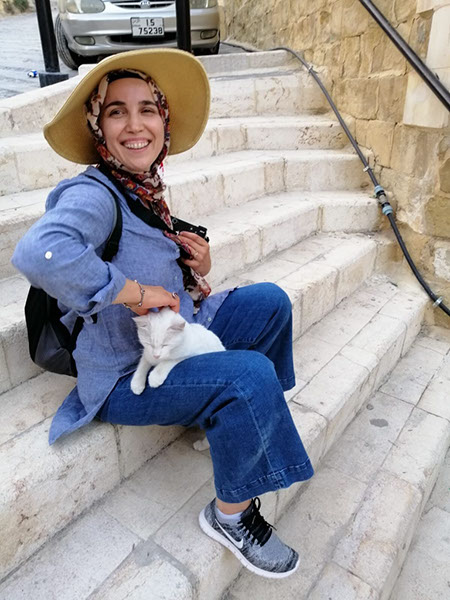
Kindly click on the pictures above or here to see all 11 photos kindly taken by Dorothee Densow


Kindly click on the picture on the left side above or here to see all 37 photos kindly taken by Georg Geckler, and see also one cell phone video from the street market and another video in the restaurant

Kindly click on the pictures above or here to see all 46 photos taken by Evelin
Day Two, 6th September 2022
Venue:
The Royal Institute for Inter-Faith Studies (RIIFS)
• 10:00 – 10:30 Welcome and Greetings by Dr. Renée Hattar (Zoom recording)
• Overview of the Conference and Day 2
• Introducing the Connection-Reflection Groups for Community Building of Day 2
• 10:30 – 11:15
Dignilogue 3: Transforming Systems of Humiliation into Systems of Mutual Dignity: From Competitive Polarity to Cooperative Pluralities and Regenerative Economies (Zoom recording)
Questions for reflection:
• How do we exit from outdated habits of competitive polarity that trigger humiliation, violent conflict, and environmental destruction?
• How do we generate movement towards cooperative plurality and responsible collaboration on behalf of humanity and the planet?
• How do we reform economies to foster equitable and sustainable livelihoods while replenishing the planet?
Dignihost (facilitator): Ella Autti
Contributors:
• Iyad Abu Haltam (Zoom recording)
• Gary Page Jones (Zoom recording)
• Zuzana Luckay Mihalcinova (Zoom recording 1 | Zoom recording 2 | Zoom recording 3)
• Reflections by His Royal Highness Prince Hassan bin Talal of Jordan (Zoom recording 1 | Zoom recording 2 (humanism) | Zoom recording 3 (Raphael Lemkin and Begum Ikramullah) | Zoom recording 4 (mental Arabia) | Zoom recording 5 (common good) | Zoom recording 6 (effective altruism)
• Reflections by Renée Hattar (Zoom recording)
• Reflections by Amer Al-Hafi (Zoom recording)
• Reflections by His Royal Highness Prince Firas Ra'ad, not public (Zoom recording)
• Reflections by Leister Sam Sudheer Manickam, Ph.D., Mysore, India (Zoom recording)
• Question to Iyad Abu Haltam (Zoom recording)
• 11:15 – 11:30 Connection-Reflection Groups: Deepening the Dialogue
• 11:30 – 12:15
Dignilogue 4: How Can Civil Society and Inter-Religious Dialogue Foster a New Era of Mutual Dignity? (Zoom recording)
Questions for reflection:
• What are the benefits of creating a global transdisciplinary fellowship?
• Who gets to feel secure? Who gets to be heard?
• How can we gather and appreciate the traditions and practices that foster dignity in every culture?
• How do we repair the consequences of humiliation in its many forms (e.g., domination, colonisation , aggression, etc.)
Dignihost (facilitator): Mara Alagic
Contributors:
• Amer Al Hafi (Zoom recording)
• Fatma Tufan (Zoom recording)
• Gary Page Jones (Zoom recording)
• Rami Abu Naffaa (he was unfortunately hindered to be with us)
• Reflections by Renée Hattar (Zoom recording)
• Question by George Chidieber Iheanacho to Prof. Amer Al Hafi (Zoom recording)
• 12:15 – 12:30 Connection-Reflection Groups: Deepening the Dialogue (Zoom recording)
• His Royal Highness Prince Hassan in dialogue with Fatma Tufan (Zoom recording)
• 12:30 – 12:45 Coffee Break
• 12:45 – 13:45 'Messages to the World' (MTTW) (pre-planned and spontaneous, as time allowed)
In light of the urgent challenges humanity is facing, we invite you to consider sharing the most important message you think the world ought to hear at this given moment. Your recorded message will be a lasting contribution to encourage progress towards peace and dignity. A MTTW is ideally 2 – 4 minutes in length and may be self-recorded in advance. See examples of past messages. Please let us know if you would like to contribute a message, so we can reserve time for your MTTW: conferences@humiliationstudies.org
• Evelin Lindner invited 'Messages to the World' (Zoom recording)
• His Royal Highness Prince Hassan bin Talal of Jordan (Zoom recording)
• Michael Britton (Zoom recording 6th September 2022 | Video short | Video long recorded on 30th August 2022, in New Jersey)
• Brian Ward (Zoom recording)
• His Royal Highness Prince Ra'ad, not public (Zoom recording)
• Evelin Lindner's response to His Royal Highness Prince Ra'ad (Zoom recording)
• George Chidieber Iheanacho (Zoom recording)
• Lucien Lombardo (Zoom recording)
• 13:45 – 14:00 Connection-Reflection Groups: Sharing Reflections and Highlights from the Day
• 14:00 – 14:15 Closing Comments on Day 2 – Looking Forward to Day 3
• Evelin Lindner offered gratitude at the end of Day Two (Zoom recording)
• Dorothee Densow and Georg Geckler sang the song 'The Cuckoo and the Donkey / Der Kuckuck und der Esel' (Zoom recording | kindly see also Georg Geckler's conference report, concluded in May 2023 in English and in German)
• Zuzana Luckay Mihalcinova shared a song (Zoom recording)
• 14:15 – 15:15 Lunch Break
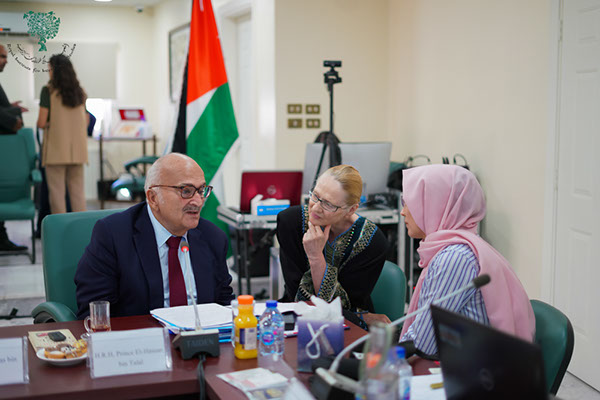
Kindly click on the pictures above or here to see all 22 photos sent to us by Renée Hattar that she posted also on her Linkedin account

Kindly click on the pictures above or here to see all 28 photos kindly taken by Fatma Tufan
Please note the Evelin's 'Circle of Love Gifts'. She explains: As many know, I live globally, and whenever I receive a gift in one part of the world, I take it to another part of the world and look for a worthy recipient for that gift. I call this the 'circle of love gifts'. When I have found a worthy recipient, I try to take a picture of him or her and send it to the giver of the gift. In that way, not only is my global life a bridge-building endeavour, also the gifts that I carry help build more bridges. It is also a 'footprint' of my path through the world.

Kindly click on the pictures above or here to see all 6 photos kindly taken by Georg Geckler, portraying Gary Page Jones
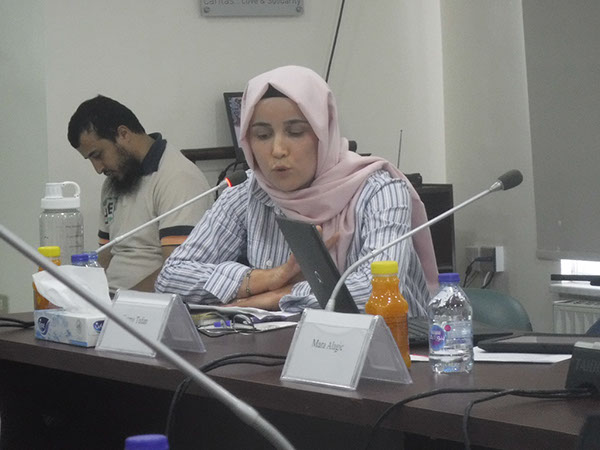
Kindly click on the pictures above or here to see all 16 photos taken by Evelin, portraying Fatma Tufan and Iyad Abu Haltam
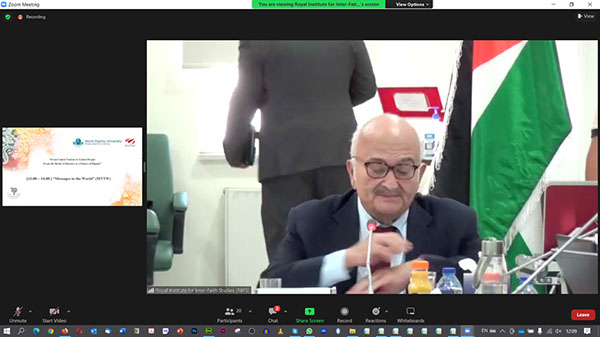
Kindly click on the pictures above or here to see all 15 screenshots of the Zoom platform taken by Evelin — it was a hybrid conference, with 125 participants registered from all around the world in addition to the local participants

Kindly click on the pictures above or here to see all 4 screenshots taken by Evelin of the Skype meeting with Ella Autti in Amman and Linda Hartling in Portland Oregon
End of the Workshop Part of Day Two
Honoured to be Invited at the Royal Palace of Prince El Hassan
All participants received these books as a gift:
(1) Bin Talal, Prince El Hassan (1979). A study on Jerusalem. London, New York Longman, in collaboration with the Publishing Committee Amman, Jordan.
(2) Bin Talal, Prince El Hassan, and Prince of Wales (Foreword) (1995). Christianity in the Arab world. Amman, Jordan: Royal Institute for Inter-Faith Studies (RIIFS).
(3) Bin Talal, Prince El Hassan (2001). Continuity, innovation and changes: Selected essays. Amman: Majlis El Hassan.
(4) Bin Talal, Prince El Hassan, and Alain Elkann (2004). To be a Muslim: Islam, peace, and democracy. Brighton: Sussex Academic Press.
(5) The Independent Commission on International Humanitarian Issues, Prince Sadruddin Aga Khan (Foreword), and Prince El Hassan Bin Talal (Foreword) (1998). Winning the human race? London: Zed Books.
Day Three, 7th September 2022
Venue: The Royal Institute for Inter-Faith Studies (RIIFS)
• 10:00 –10:30 Welcome and Greetings
• Greeting His Royal Highness Prince Firas Ra'ad, who attended in his private capacity (rather than his professional one)
• Overview of the Conference and Day 3
• Introducing the Connection-Reflection Groups for Community Building of Day 3
• 10:30 – 11:15 Inspirational Key Talk by Evelin Lindner, Founding President of Human Dignity and Humiliation Studies – 'From Humiliation to Dignity: From the Brink of Disaster to a Future of Global Dignity in Solidarity'
(Zoom recording | PowerPoint | 52 minutes version recorded on Zoom on 18th August 2022, in Germany, draft of proceedings)
• 11:15– 11:30 Connection-Reflection Groups: Deepening the Dialogue
• 11:30 –12:15
Dignilogue 5: Designing Our Lives for Dignity: The Role of Beauty, Music, Movement, Poetry, Spirituality, Nature, and Art (Zoom recording)
Questions for reflection:
• How does creativity bring insight and energy into our efforts?
• What are the lessons for connection that we can learn from Indigenous, spiritual, religious, and cultural traditions?
• How does sharing 'gifts of beauty' plant seeds of peace and dignity for all?
Dignihost (facilitator): Renée Hattar
Contributors:
• Pamela Charbieh (online)
• May Nasr (online)
• Georg-Wilhelm Geckler and Dorothee Densow
• Dorothee Densow and Georg Geckler sang once more the song 'The Cuckoo and the Donkey / Der Kuckuck und der Esel' (Zoom recording | kindly see also Georg Geckler's conference report that he concluded in May 2023 in English and in German)
• 12:15 – 12:30 Connection-Reflection Groups: Deepening the Dialogue
• 12:30 – 12:45 Coffee Break
• 12:45 – 13:45 'Messages to the World'… Continued (preplanned and spontaneous, as time allows)
'What is your message to the world?' This is your last opportunity to consider sharing your special message to inspire others.
• His Royal Highness Prince Hassan bin Talal of Jordan (Zoom recording)
• Peter Barus: As our gracious hosts and others have pointed out, we cannot solve our complex, dynamic perdicament a piece at a time, or understand it by examining the parts. Instead we must take a holistic approach that appreciates the interdependent, interconnected, constantly moving nature of life. Human transformation will not be easily perceptible, because it is not from the past, and cannot be commodified; and because it has always been our nature. Our worldviews are limited to past experience, riddled with trauma, fragmented by attention-exploiting technology, and distracted by answers that beg the real questions. But 'the medicine is next to the wound'. Outside of this bubble of our awareness there is a lot going on that shows up, when we look for it, not passively, but creatively: not with apathy and despair, but the eyes of stewardship and love. HDHS, Ubuntu, the global indigenous movement, even the rising tumult of a failing, obsolete, self-parasitic culture: all speak to the arising individual realization of belonging, care and responsibility, in each of us, for the whole of life. This is our future in the making. Every person has a hand in it.
• Dieter and Georg Geckler: 'Message to the World' (Video developed over a period of more than one year and finalised on 5th September 2022 in Germany | kindly see also Georg Geckler's conference report, concluded in May 2023 in English and in German)
• 13:45 – 14:00 Connection-Reflection Groups: Sharing Reflections and Highlights from the Conference
• 14:00 – 14:15 Appreciations and Carrying the Work for Peace and Dignity into the World
• 14:15– 15:15 Closing Comments on Day 3
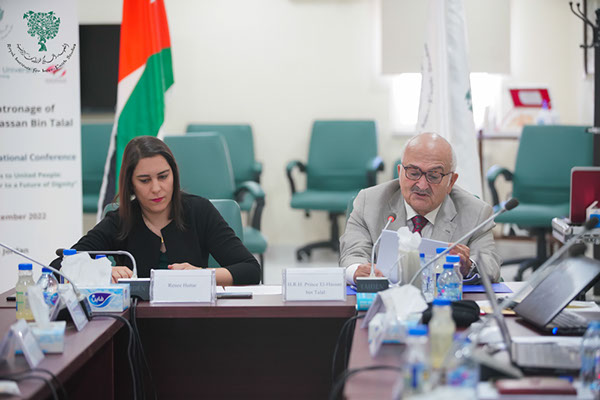
Kindly click on the pictures above or here to see all 27 photos sent to us by Renée Hattar that she posted also on her Linkedin account• Contribution by Ghassan El Masri (Zoom recording)
• Evelin Lindner explained her concept of dignity (Zoom recording)
• Dr. Renée Hattar closed the Conference (Zoom recording)
• Ella Autti sang a Finnish song (Zoom recording)
• Dorothee Densow and Georg Geckler sang the song 'The Cuckoo and the Donkey / Der Kuckuck und der Esel' (Zoom recording | kindly see also Georg Geckler's conference report, concluded in May 2023 in English and in German)
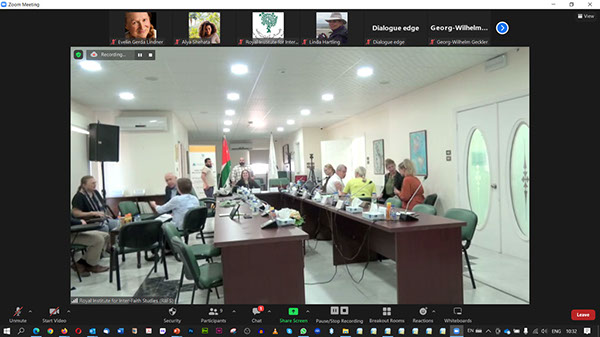
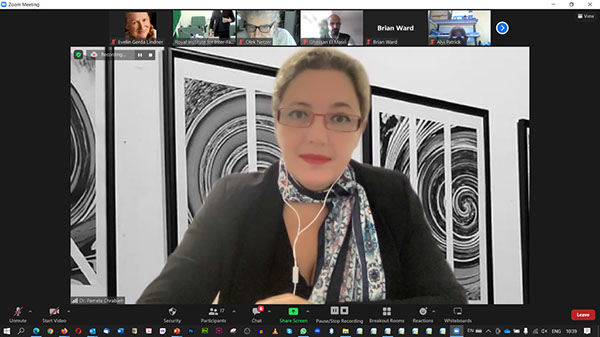
Kindly click on the pictures above or here to see all 35 screenshots of the Zoom platform taken by Evelin — it was a hybrid conference, with 125 participants registered from all around the world in addition to the local participants
Pamela Charbieh and May Nasr contributed online
End of the Workshop Part of Day Three
Excursion to Mount Nebo and Madaba, Restaurant Haret Jdoudna


Kindly click on the pictures above or here to see all 49 photos kindly taken by Georg Geckler, Dorothee Densow, Mara Alagic, and Evelin Lindner
Participants
| Evelin Lindner's year 2022 was deeply affected by two wise and deeply loving men, one coming and one leaving. • Top: What an honour and privilege it was to meet His Royal Highness Prince El Hassan bin Talal of Jordan for the first time in person, after so many Zoom meetings since 2020! It was on 1st September 2022, in his Majlis in Amman. • Bottom: Evelin's beloved father left this Earth in May 2022. The left picture shows him when he was still working in the garden, it was in 2019, the right picture shows him on his 96th birthday on 26th February 2022. He died on 3rd May 2022 in Hameln, Germany. Kindly click on the pictures to see them larger. |
 |
• Linda M. Hartling, PhD, is the Director of Human Dignity and Humiliation Studies (HumanDHS) and is part of the leadership team facilitating HumanDHS projects, including the World Dignity University initiative and Dignity Press. Dr. Hartling is the past Associate Director of the Jean Baker Miller Training Institute (JBMTI), part of the Wellesley Centers for Women (WCW) at Wellesley College in Massachusetts. She writes: I am the author of the Humiliation Inventory, the first scale to assess the internal experience of humiliation. I worked closely with Jean Baker Miller, M.D., and others on the development of Relational-Cultural Theory that posits that mutually beneficial relationships are a central human necessity. I'm also the recipient of the 2010 Research Award presented by the Association for Creativity in Counseling, American Counseling Association. In this conference, I would love listening to many perspectives on dignity, humiliation, relational development, social change, the dignifying necessity of care work, replenishing the planet, and the three ecologies: the ecosphere, sociosphere, cogitosphere. I love creativity, I love working with Evelin Lindner and the HumanDHS community, and I love connecting with all who strive to end cycles of humiliation and cultivate greater dignity in the world. Currently, I live near Portland, Oregon (U.S.A.) and I am doing some of the most important dignity work one can do for one's family. I am caring for a 92-year-old father with major health issues. I would have loved being with you in person, but this is unfortunately not possible. I will try to be with you on Zoom, and even though I may not be able to attend all aspects of the conference (not least because it begins in the middle of the night for me), I look forward to listening in as much as possible! Please see the two videos I made for you: - The Appreciative Frame of this conference: https://youtu.be/06oKje3prRc - Introduction to the Dignilogue approach and the Connection-Reflections groups:-https://youtu.be/JQXLRWneRMo |
Contributors from the Levante region who contributed to dignilogues
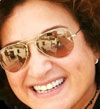 |
• May Nasr is a musician whose decades of popular performances with her guitar have honored the folk traditions of her homeland Lebanon and the MENA Region countries. She was vocally trained and mentored by iconic masters passed in Arabic folk music (namely, Mr. Farid Abulkheir, founder of Baalbeck Recording Studio — Mr. Zaki Nassif, Lebanese folk musician and voice coach — Mrs. Badia Sabra, voice coach). May has regularly performed in concerts and festivals, both, regionally and internationally (Middle East, Europe and USA). She has two albums to her name: Lil Ghaly (The Beloved One) and a Single: Ouhibouka (I Love You), in addition to a co-production in the USA with Latin American musician, Lourdes Perez: Written in Water (Escrito en Agua) which brought together the Arabic and Latin cultures together. A passionate advocate for peace building, May has dedicated her life to playing an active role in creating positive change through her long professional career in civil society empowerment and support, currently in the field of mediation and conflict resolution, where she managed PartnersYemen for several years before moving back to Lebanon to found PartnersLebanon in 2017. May is currently the director of Partners-Jordan in Amman where, in addition to supporting the center’s projects, she is working on adding Peace Building through Cultural Music and the Arts as a new programmatic pillar to the organisation. |
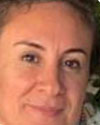 |
• Dr Oroub El-Abed is a lead researcher in Jordan and co- investigator at the Centre for Lebanese Studies on several research projects studying several communities (locals and refugees) with intersectional approaches in the Middle East. Oroub completed her PhD in Political Economy of Development Studies from the School of Oriental and African Studies (SOAS). Her research work has been focused on refugees and vulnerable minorities in the Middle East. She has taught several courses on development, livelihood and forced Migration issues and has consulted for several UN and international NGOs and published articles in the area of development (education and employment) and forced migration in the Middle East. |
 |
• Iyad Abu Haltam, holds a PHD degree in Management, MBA in Management, MSc in Electrical Engineering and BSc in Electrical Engineering. Positions held: 1997- till now: Partner & Managing Director at General Deluxe Electronics. 2012- 2022: Board Member of Amman Chamber of Industry. 2016- 2022: Vice Chairman of Jordan Enterprise Development Corporation (Jedco). 16/8102 -2022: Board Member of Board of Trustees of Tafila Technical University. 2010- 2018: Chairman of Eastern Amman Investors Industrial Association (EAIIA). 2006 -2011: Instructor at Morgan international – Jordan. PHR/SPHR certification Program. |
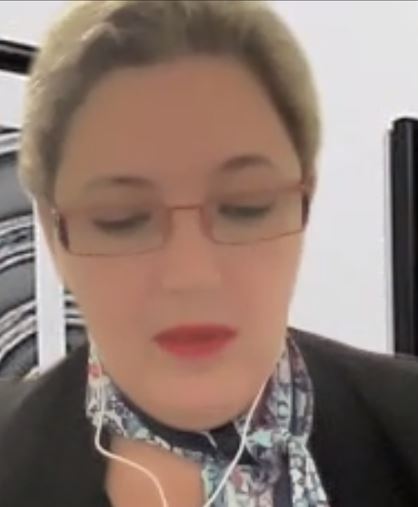 |
• Pamela Charbieh is a Lebanese-Canadian visual artist, researcher, activist, writer, and consultant in creative communications, with extensive 20+ years of multidisciplinary and international experience in university teaching (2004-2021: Lebanon, Canada, UAE), academic research (2001-present), visual arts and art direction (1996-present), communication & content creation in the fields of education, international organizations/NGOs, arts & culture, humanities, and healthcare & bioethics (2018-present), as well as project and program management, training, and conference/workshop organization. Dr. Chrabieh holds a Higher Diploma in Fine Arts and Restoration of Icons (ALBA-Lebanon, 1999). She pursued her higher studies at the University of Montreal in Quebec-Canada: Minor in Religious Sciences (1999), MA in Theology, Religions, and Cultures (2001), Ph.D. in Theology-Sciences of Religions (2005), and held two postdoctorate positions (2005-2008). Dr. Chrabieh is the author of numerous books, book chapters, academic papers, and online articles. As a visual artist, she exhibited her work in Canada, Lebanon, the United Arab Emirates, Italy, Spain, Hong Kong, China, and the USA. As an activist, she has been a member of local/international NGOs, and a member of executive committees and advisory/editorial boards of several organizations since 1995. Dr. Chrabieh won several national and regional prizes in Canada and the UAE. Since 2020, she has been Program Manager at Dar al-Kalima University (Bethlehem) and since 2021, SPRKL (Cyprus) Communications Manager. pamelachrabiehblog.com |
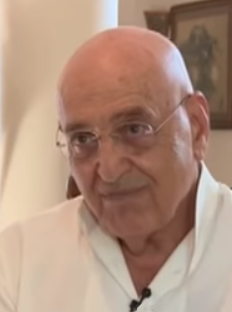 |
• Nabil Sawalha is a renowned Jordanian comedian, writer, and Laughter Yoga Teacher, born near the city of Madaba in 1941. |
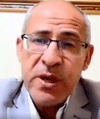 |
• Professor Amer Adnan Al Hafi is the Associate Director and Head of the Research Committee of the RIIFS, RIIFS Academic Advisor, and Associate Professor at the Faculty of Sharia at Al-Bayt University. |
Other participants from Jordan
| • Zafiris Tzannatos, Lebanon / Jordan |
| • Laila Sawaf, The Royal Institute for Inter-Faith Studies |
| • Majdi Al-Hmood, The Royal Institute for Inter-Faith Studies |
| • Lukas Koutsky, Czechia, Intern at the Royal Institute for Inter-Faith Studies |
| • Sophie Nieuwewemen, The Netherlands, Intern at the Royal Institute for Inter-Faith Studies |
Participants from the HumanDHS network who travelled to Amman from across the world
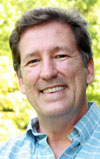 |
• Lyndon Harris is a forgiveness teacher, coach, and inspirational speaker, offering keynotes for conferences around the world. But Lyndon came kicking and screaming to the work of forgiveness. As a former priest, he thought he had it all figured out. Until he had to do the hard work of forgiveness: forgiving others, forgiving himself, forgiving life. Beginning at the foot of the besieged South Tower of the World Trade Center on the morning of 9/11, and continuing beyond the reclaiming of the WTC site, Lyndon’s journey has had many highs and some devastating lows on his path to reclaim his life through the power of forgiveness. Lyndon’s work after 9/11 has been written about widely, including The New York Times, The Washington Post, The Christian Science Monitor, and Time Magazine. His forgiveness work is also featured in the award-winning documentary, 'The Power of Forgiveness' (Journey Films, 2006). For more information see www.lyndonharris.com. [read more] |
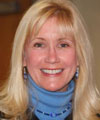 |
• Maria Lund is President and COO of First Sun EAP a national provider of employee assistance program services in South Carolina. Maria has over 30 years of experience working in the counseling and EAP fields. She has a Master’s Degree in Clinical Psychology and is a Certified and Licensed Employee Assistance Professional as well as a Licensed Professional Counselor. She is a leader in the EAP industry and has received rewards and recognition for her leadership from several EAP Associations. For 17 years Maria was Chair of the EAPA Communications Committee and a standing lead columnist for the Journal of Employee Assistance which is the EAP industry’s professional publication. She is now the Editor of this Journal. Maria served as a Commissioner on the Employee Assistance Certification Commission. Maria lives in Zirconia North Carolina with her husband Lyndon Harris.[read more] |
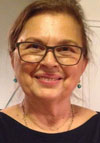 |
• Mara Alagic, Ph.D. in Mathematics from the University of Belgrade, is a Professor in the School of Education and serves as the Graduate Coordinator for the Master of Education in Learning and Instructional Design (LID) program at Wichita State University, USA, where she is also involved in the transdisciplinary Disaster Resilience Analytics Center. She is Editor in Chief of the Journal of Mathematics and the Arts, Taylor & Francis, UK. Her interest in developing intercultural communication and global learning competence has arisen from having taught internationally and in culturally diverse environments which led to co-authoring the book Third Place Learning: Reflective Inquiry Into Intercultural & Global Cage Painting. Dr. Alagic’s most recent work is focused on Adaptive Scaffolding toward Transdisciplinary Collaboration, presented at the Learning Ideas conference, NYC, USA. [read more] |
 |
• Gary Page Jones has worked in both the public and private sectors and in academia over a period of 40 years. Involved with development planning in long term stable environments as well as humanitarian emergencies including conflict and post conflict, Gary has experience in promoting a resilience agenda through participatory social development in rural and urban settings. Gary has been a volunteer, country director for an international nongovernmental organization, corporate responsibility manager for a multinational private company and programme manager for UNICEF and UNDP before joining UNAIDS as the senior humanitarian and security advisor. As an academic, Gary has authored work on HIV risk and resilience as well as decentralized systems of health care among ethnic minorities. Gary has a PhD from James Cook University, in HIV risk and perception of dignity among young people, where he is also a guest lecturer for the Master’s course in Public Health. Gary acts as a resource person including guest lecturing at Deakin University on community resilience in humanitarian and fragile settings and cross-cultural communication at the University of the 3rd Age, Australia. Other commitments of Gary include a board member for Slum Child Foundation, Kenya, co-chair of the South Sudan Women’s Peace Institute, Strategic Advisor the African Association, Australia, and Global Advisor at the World Dignity University. Based in Geneva, Switzerland, Gary’s adopted home is north Queensland, Australia, where is two children currently reside. See his doctoral dissertation: Jones, Gary Page (2019). Hiv and Young People: Perceptions of Risk, Resilience and Dignity in an Urban Slum. Cairns, Queensland, Australia: James Cook University. [read more] Gary kindly wrote on 9th September 2022: Many thanks, Evelin ... thank you for an uplifting and inspiring past few days. Such a positive experience. Thank you for your ceaseless efforts. Kind regards, Gary |
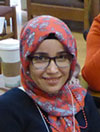 |
• Fatma Susan Tufan has been a member of the Human Dignity and Humiliation Studies since 2019. She holds a B.A. in Sociology with a minor in Peace and Justices from Moravian University, Pennsylvania., U.S.A., and an M.A. in the Social-Psychology program at Teachers College, Columbia University, New York City. She also completed an Advanced Certificate Program in Cooperation and Conflict Resolution at the Morton-Deutsch International Cooperation and Conflict Resolution Center, Columbia University. In her work, Fatma primarily focuses on sustainable solutions to drivers of conflict in human relations. She has 18 years of experience in Interfaith Dialogue. Currently, she is working on turning her dialogue and constructive conflict related real-life experiences into stories to share with the rest of the world. Fatma identifies herself as a global citizen. [read more] |
 |
• Ella Autti is currently undertaking PhD research into shame and humiliation in healthcare work communities at the University of Lapland, Finland. She aims to pursue an understanding of the dialogues and systems that humiliate or cause shame in work settings. She holds a master's degree in social sciences and has a background in marketing and communications. Ella is filled with a desire to help healthcare organizations to have mutually respectful and dignified work cultures. [read more] |
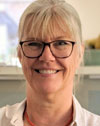 |
• Dorothee Densow is a retired nurse who specialised in psychosomatic diseases. She lives in Hameln in Lower Saxony, Germany. Dorothee has an ongoing interest and expertise in the fields of environment and agriculture. In 2020, she joined the DignityNowHameln group, and also attended the online Workshops on Transforming Humiliation and Violent Conflict in December 2020 and December 2021, hosted by HumanDHS and the Morton Deutsch International Center for Cooperation and Conflict Resolution (MD-ICCCR) at Columbia University, New York City. |
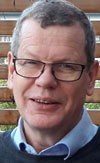 |
• Georg-Wilhelm Geckler is a mechanical engineer (Dipl.-Ing.) who worked in the export of machine tools to the Near and Middle East, in the oil and gas industry, and in a company constructing depositories for radioactive waste. Since October 2015 he is retired, moved to Hameln in Lower Saxony, Germany, and works voluntarily for the integration of Yazidi refugees from Iraq and in a Lutheran parish council. He is also a European Climate Pact Ambassador in Germany. His interests are ethics, financial economics, ecology, philosophy, and genealogy, and he is eager to contribute to a future of global dignity. Georg Geckler is Dorothee Densow's partner. [read more] Kindly see his conference report in English and in German (concluded in May 2023). |
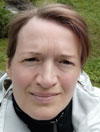 |
• Zuzana Lučkay Mihalčinová is committed to studying dignity and human dignity from an interdisciplinary perspective in literature, human rights, transitional justices and contexts of identity and language. She has a degree in English (literature and linguistics) and a Ph.D. on dignity (possibilities of regaining dignity in post-apartheid South Africa). She has taught at and worked with universities, and academic institutions in South Africa, US, UK and EU, recently in Spain and Germany. She is co-initiator of the Vienna Week of Dignity. Zsuzsa was born in Czechoslovakia and has lived in various countries. She is relentlessly promoting and motivating avenues of applicability of dignity. She has been an active member of the Human Dignity and Humiliation Studies for over two decades. [read more] |
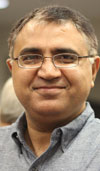 |
• Shahid Khan came to United States in 2010 and has established the non-profit organization, National Youth Organization of Pakistan Inc. in 2014. [read more] |
HumanDHS participants who registered to be with us online (alphabetical, according to first names)
| • Abhishek Kumar Jain, India |
| • Abrar Majid, Pakistan |
| • Alicia Cabezudo, Argentina |
| • Amanda Ripley, U.S.A. |
| • Amy Jeu, New York City |
| • Amy Hudnall, U.S.A. |
| • Anastasia Taskin, New York City |
| • Andrew Benson Greene, Sierra Leone / U.S.A. |
| • Anoop Swarup, India / Australia |
| • Anne Collier, Estonia |
| • Asma Ahmad, United Arab Emirates |
| • Aura Sofia Diaz, Venezuela / New York City |
| • Beth Boynton, U.S.A. |
| • Brian Ward, New Zealand |
| • Charles Muliya, Zambia |
| • Chipamong Chowdhury, Bangladesh / U.S.A. |
| • Clement Niyukuri, Burundi/Rwanda |
| • Craig Tuck, New Zealand |
| • Dieter Geckler, Germany |
| • Eduardo Carvalho, Brazil |
| • Elaine Meis, New York City |
| • Emmanuel Ndahimana, Rwanda |
| • Fatima Sousa, Brazil |
| • Femke Wijdekop, The Netherlands |
| • Jean d'Amour Dusengumuremyi, Rwanda |
| • Gabriela Hofmeyer, San Francisco |
| • George Iheanacho, Nigeria / U.S.A. |
| • Gershon Mitchel, U.S.A. |
| • Giovanni Scotto, Italy |
| • Gordana Jovanovic, Serbia |
| • Hanneli Arndt and Daniel Sidler, South Africa |
| • Harvey Newman, U.S.A. |
| • Hayal Köksal, Turkey |
| • Helene Lewis, South Africa |
| • Isabel Barroso, Catalonia |
| • Janet Gerson, New York City |
| • Jillian Post, U.S.A. |
| • Jingyi Dong, Norway |
| • Jocelyn Wright, Canada / South Korea |
| • Judit Révész, Hungary / U.S.A. / Geneva, Switzerland |
| • Kathy Orchen, U.S.A. |
| • Karin Dremel, Germany / U.S.A. |
| • Kiyoko Sueda, Japan |
| • Kristian Laubjerg, Sweden / Senegal |
| • Lasse Moer, Norway |
| • Lucien Lombardo, U.S.A. |
| • Mani Bruce Mitchell New Zealand |
| • Mariana Vergara, Ecuador / U.S.A. |
| • Mark Manumbu, Tanzania |
| • Marta Carlson, U.S.A. |
| • Mary Tehan, Australia |
| • Mbeh Adolf Tanyi, Cameroon |
| • Michael Boyer, U.S.A. / Germany |
| • Michael Britton, U.S.A. |
| • Pamela Hiley, Wales / Norway |
| • Patrick Lalur, Gulu, Uganda |
| • Peter Barus, Vermont, U.S.A. He wrote on 7th September 2022: 'Dear, dear Evelin, Thank you for an amazing experience! Your talk was so engaging, and enlightening. ... All in all, a unique and miraculous meeting of minds! Thank you again and again, for who you are'. |
| • Peter Pollard, U.S.A. |
| • Pradeep Nishantha Weerasinghe, Sri Lanka |
| • Rajesh Dixit, India |
| • René Wadlow |
| • Rigmor Johnsen, China / Norway |
| • Leister Sam Sudheer Manickam, Ph.D., Professor in Clinical Psychology Department of Psychiatry, J.S.S. Medical College & Hospital, Ramanuja Road, Mysore 570 004, India |
| • Sanjay Nanwani, Colombia |
| • Sharon Steinborn, U.S.A. |
| • Stephen Hirtenstein, United Kingdom |
| • Sushrut Jadhav, United Kingdom |
| • Tony Gaskew, U.S.A. |
| • Uli Spalthoff, Germany |
| • Wellington Lira, Brazil |
| • Vinita Raj, India |
| • Waris Ali, Pakistan / New York City, U.S.A. |
| • Zehlia Babaci Wilhite, Norway / U.S.A. |
Participants who were new to HumanDHS and registered to be with us online (alphabetical, according to first names)
| • Ananta Kumar Giri, India |
| • Ahmed Allouch, Tunesia |
| • Alya Shehata, Egypt |
| • Barbara Lond, London, United Kingdom |
| • Dellis Nyakeriga, Kenya |
| • Gary Vachicouras, Geneva, Switzerland |
| • Michael Driessen, Italy |
| • Monika Sramova, Slovakia |
| • Mustafa AbulHimal, Jordan |
| • Rhodius Noguera, Philippines |
| • Samar Muhareb, Jordan |
| • Shamir Faraz, Pakistan |
| • Walid Sarhan, Jordan |
• Appreciative Frame of the conference
Linda M. Hartling, Ph.D., Director of HumanDHS. Linda is also affiliated with the Jean Baker Miller Training Institute (JBMTI) at the Stone Center, which is part of the Wellesley Centers for Women at Wellesley College in Massachusetts. Until 2008, she was its Associate Director.
In our conferences, we aim at creating a humiliation-free, collaborative learning environment characterised by mutual respect, mutual empathy, and openness to difference. The perspective of 'appreciative enquiry' is a useful frame of our work. Our HumanDHS efforts are not just about the work we do together, but also about HOW WE WORK TOGETHER. At appropriate points during our conferences, for example at the end of each day, we take a moment to reflect on the practices observed that contributed to an appreciative/humiliation-free learning experience.
Please read An Appreciative Frame: Beginning a Dialogue on Human Dignity and Humiliation, that Linda has written for us in 2005.
Also created by Linda M. Hartling:
• Appreciative Enquiry 2, a video that was uploaded onto YouTube on August 11, 2012, in preparation of the 19th Annual Conference of Human Dignity and Humiliation Studies, 27th-30th August 2012, in Oslo, Norway.
• Our Appreciative Frame 3, a video created in December 2014 (see also Pdf), for the 2014 Workshop on Transforming Humiliation and Violent Conflict, in New York City, December 4 – 5, 2014.
• Appreciative Enquiry 4, a video that was recorded on May 27, 2015, in Portland, Oregon, USA, for the 25th Annual Conference of Human Dignity and Humiliation Studies, in Kigali, Rwanda, 2nd – 5th June 2015.
• Appreciative Frame, by Linda Hartling on December 8, 2016, at the 2016 Workshop on Transforming Humiliation and Violent Conflict, in New York City, December 8 – 9, 2016.
• Appreciative Frame, recorded on 5th December 2019, for our 2019 Workshop on Transforming Humiliation and Violent Conflict
• Appreciative Frame, recorded on 10th December 2020, for our 2020 Workshop on Transforming Humiliation and Violent Conflict
• Appreciative Frame, recorded on 9th December 2021, for our 2021 Workshop on Transforming Humiliation and Violent Conflict
• Appreciative Frame, recorded on August 23, 2022, in Portland, Oregon, USA, for the 37th Annual Conference of Human Dignity and Humiliation Studies, in Amman, Jordan, 5th – 7th September 2022.
• History of the Dignilogue (Dignity + Dialogue) Approach
Created by Linda M. Hartling:
• Dignilogue: An Introduction to Dignity + Dialogue created on 31th May 2015
• Introducing the Open Space Format to the HumanDHS Network, longer version created on 13th August 2012
• Dignilogue Tips and Dynamic Dignilogue List, created on 10th October 2015 for our 2015 New York Workshop
• Our Open Space Dignilogue Format, created on 12th August 2012 for our 2012 Norway Conference
• See also A Summary of Our Dignilogue Format created in 2010 for you to download
• See also Appreciative Facilitation: Hints for Dignilogue Moderators, written in February 2006 by Judith Thompson to support the Moderators of our workshops
For the past decade, we have continuously worked to dignify the traditional institution "conference." The Open Space movement originally started from the observation that after mainstream academic conferences, the participants, when asked, often say: 'Oh, I slept through the presentations, but the coffee breaks were wonderful!'
'Conference programs are replete with monologues that silence all but the speaker. The vitalizing communication is typically found in the hallways, the bars, and the dinner table – the venues of informal conversation', wrote scholar Kenneth Gergen in 2009 (in his book on relational being). In other words, the motivating impetus behind the Open Space approach is that academic conference can be rather boring; invited speakers might not be in tune with the audience; and reading papers aloud may be particularly uncommunicative. The creators of the Open Space approach thought: 'Ok, why don't we create conferences that are structured like coffee breaks!' Please read more about the originator of the Open Space Technology, Harrison Owen. See also Open Space Tools by Peggy Holman.
In slight variation of traditional conferences, we therefore aim at co-creating our conferences. We have adapted the Open Space approach, added the term dialogue, and connected it with dignity to form the expression Dignilogue (see also our Video page for how peace linguist Francisco Gomes de Matos has inspired this linguistic creation).
You can see an Introduction into the Dignilogue Sessions Format created by Linda M. Hartling on 12th August 2012, for our 2012 Norway Conference, or read more about the Dignilogue format and what it entails. See also Linda's Dignilogue Tips and Dynamic Dignilogue List, created on 10th October 2015 for the 2015 Workshop on Transforming Humiliation and Violent Conflict at Columbia University in New York City.
This format is very open, it means that a conference is self-organizing. We take a highly collaborative approach to determining how to use our time.
We invite participants to be with us without the ambition to "present" something, so that we all could get a feel for the dignity-family-building work that we wish to nurture first and foremost. So, the workshop requires its participants to bring themselves as they are, be prepared for everything, and use the flow to contribute in the most nurturing way they can. As background reading you might enjoy "Are College Lectures Unfair?" by Anne Murphy Paul, The New York Times, September 12, 2015, or When Nothing Is Cool by Lisa Ruddick, Criticism, 2015.
The Dignilogue approach allows for identifying priorities for dialogue sessions on key topics.
In practice, on Day One of our conference, we, the participants, make the programme for Day Two and Day Three together, in a collaborative effort. All participants are both presenters and audience, there is no separation, there is no pre-planned programme, except for the introductory part (and the Public Event). We are aware that this approach is new to most people, yet, it opens new dimensions. We invite every participant to join in and try. It has an profoundly dignifying impact and, as our participants always tell us afterwards.
The grand finale of each Dignilogue session is to invite representatives from each Dignilogue to create a Dignivideo, where they document the highlights of their conversation and insights, and more than that, formulate a "message to the world" as it has cristallized in the dignilogue. These videos are treasured contributions to our World Dignity University Library of Ideas that will be shared with the world and will inspire future generations of our community. Please read about the way we work in our newsletter10.
There are two main ways to conduct our WDU videos:
1. Each group can choose two representatives (usually the initiator chooses one participant in the group) and they engage in a short dialogue (example). Advantage: the message may be clearer.
2. The entire group can stand in front of the camera (example). Advantage: everybody is being included.
Evelin Lindner explained the procedure of the 'Messages to the World' for the World Dignity University Initiative for the Dignity Conference in Cairo, Egypt, on 21st September 2018 (see video).
We always encourage all participants of our events to nurture mutually dignifying connections with the other participants and gather together afterwards to experiment with new forms of "conferencing" wherever you live in the world. New solutions are necessary and they need to be nurtured in dignified ways, ways which protect them from being destroyed by being framed in old paradigms (such as those of protest that simply ends in new dominators taking over). See our reflections on appreciative nurturing, or Charles Eisenstein's Reflections on the New Story Summit, or Evelin's text Is it Possible to "Change the World"? Some Guidelines to How We Can Build a More Decent and Dignified World Effectively: The Case of Dignifying Abusers.
Papers
All participants are warmly invited to send in papers.
Please notify us, if you wish to submit any of your papers also as a book chapter or as a journal article.
Please see earlier submitted papers here:
• List of All Publications
Background material
• Statement on the United Nations Relief and Works Agency for Palestine Refugees in the Near East (UNRWA), by HRH Prince El Hassan bin Talal, WRMC Honorary Chair, and the Hon. Lloyd Axworthy, WRMC Chair, 30 July 2024
• Dennis J. Snower: DAS! mit Wirtschaftswissenschaftler Dennis J. Snower, 15th July 2022, available until 15th October 2022 here.
• Waslekar, Sundeep (2021). "Reinventing multilateral order." In New England Journal of Public Policy, 33 (2), p. Article 3.
Sundeep Waslekar kindly commented on 16th December 2021: "This short essay introduces a new approach to global governance. Though it may appear radical and utopian in the short run, it provides a way out of the global crisis on a sustainable basis."
• 'To stop climate disaster, make ecocide an international crime. It's the only way', by Jojo Mehta and Julia Jackson, The Guardian, 24th February 2021.
